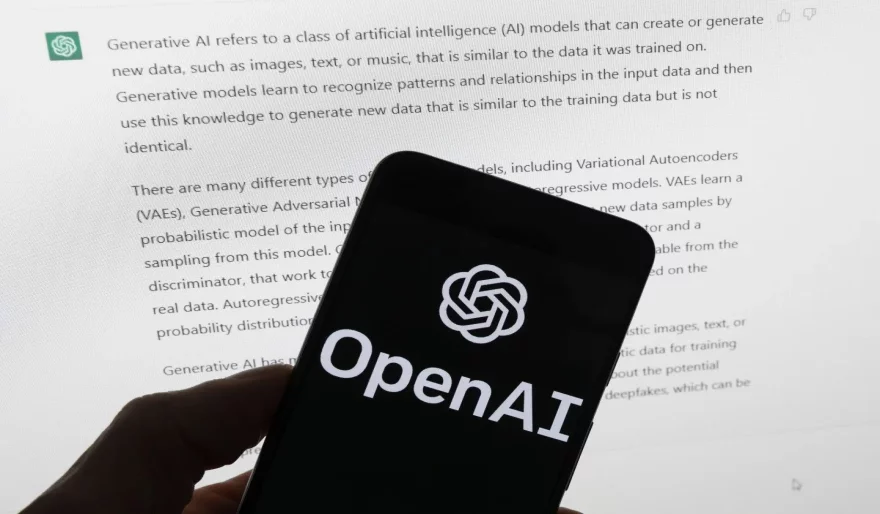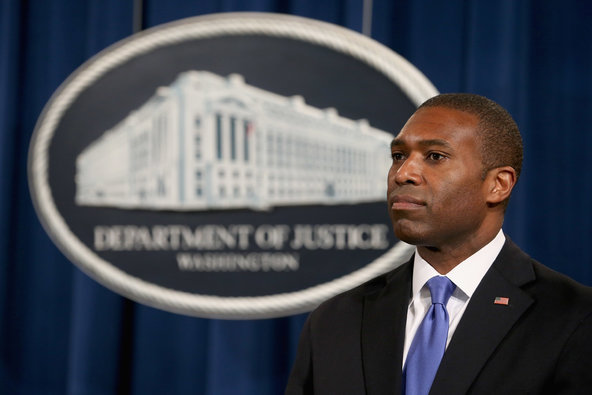OpenAI Facing FTC Probe: Examining The Potential Consequences

Table of Contents
The FTC's Focus: Allegations of Unfair or Deceptive Practices
The FTC's primary mandate is to protect consumers from unfair or deceptive business practices. Their investigation into OpenAI likely stems from concerns about how the company’s powerful AI models are developed, deployed, and used. This includes scrutinizing potential violations of consumer protection laws, specifically those related to AI outputs and data privacy.
-
Potential allegations of bias in OpenAI's models: AI models are trained on vast datasets, and if these datasets reflect existing societal biases, the AI can perpetuate and even amplify them. The FTC might investigate whether OpenAI adequately addressed and mitigated bias in its models, potentially leading to discriminatory outcomes. This includes analyzing the fairness and equity of outputs from ChatGPT and DALL-E.
-
Concerns regarding the handling and protection of user data: OpenAI collects significant amounts of user data to train and improve its models. The FTC will likely examine whether OpenAI complies with data privacy regulations like CCPA and GDPR, ensuring users have control over their data and that OpenAI is transparent about its data collection and usage practices. Potential issues could revolve around consent, data security breaches, and appropriate data minimization.
-
Questions about the accuracy and transparency of OpenAI's AI systems: The outputs of AI models, while impressive, are not always accurate. The FTC might investigate whether OpenAI is sufficiently transparent about the limitations of its models and whether users are adequately informed about the potential for inaccuracies or misleading information. This also relates to the potential for misuse and the spread of misinformation through these powerful tools.
-
Potential violations of consumer protection laws related to AI outputs: The FTC might investigate whether OpenAI's AI systems cause harm to consumers, violating consumer protection laws. This could involve situations where AI-generated content leads to financial loss, reputational damage, or other forms of harm.
Potential Consequences for OpenAI
The outcome of the OpenAI FTC probe could have severe repercussions for the company. These consequences can be broadly categorized into financial penalties, operational restrictions, and reputational damage.
Financial Penalties
The range of potential fines OpenAI could face is substantial, depending on the severity of any violations found by the FTC.
-
Magnitude of fines depending on the severity of violations: The fines could range from millions to billions of dollars, potentially crippling the company's financial stability.
-
Impact on OpenAI's financial stability and future investments: Significant fines would severely impact OpenAI’s ability to secure future funding and continue its ambitious research and development projects.
-
Potential legal fees and costs associated with the investigation: The legal costs involved in defending against the FTC's investigation will be substantial, adding further strain on OpenAI's financial resources.
Operational Restrictions
The FTC might impose operational restrictions to ensure future compliance with consumer protection laws and data privacy regulations.
-
Mandated changes to data handling practices: OpenAI might be required to implement significant changes to its data collection, storage, and usage practices, impacting its ability to train its models effectively.
-
Restrictions on the development or deployment of certain AI models: The FTC could restrict the development or deployment of specific AI models deemed excessively risky or prone to causing harm.
-
Increased oversight and monitoring of OpenAI's activities: OpenAI could face increased regulatory scrutiny and ongoing monitoring of its operations to ensure compliance with any imposed restrictions.
Reputational Damage
The OpenAI FTC probe has already generated significant negative publicity, and the outcome could severely damage OpenAI's brand and public image.
-
Loss of consumer trust and confidence: Negative findings from the FTC investigation could erode consumer trust in OpenAI's products and services, impacting user adoption.
-
Impact on investor relations and future funding rounds: Reputational damage could make it difficult for OpenAI to attract further investments, hindering its growth and development.
-
Difficulty attracting and retaining top talent: The negative publicity surrounding the investigation could make it harder for OpenAI to recruit and retain top engineers and researchers.
Broader Implications for the AI Industry
The OpenAI FTC probe sets a crucial precedent for the entire AI industry. The outcome will significantly influence how other AI companies approach development, deployment, and data handling.
-
Increased regulatory scrutiny of AI development: The investigation is likely to trigger increased regulatory scrutiny of AI development across the board, leading to stricter guidelines and oversight.
-
The potential for stricter data privacy regulations: The probe could drive the development of more stringent data privacy regulations tailored specifically to the unique challenges presented by AI technologies.
-
Stimulating the development of ethical guidelines and best practices within the AI industry: The investigation will almost certainly encourage the AI industry to proactively develop and implement robust ethical guidelines and best practices to promote responsible AI development. This includes establishing clearer processes for addressing bias, ensuring data privacy, and promoting transparency.
Conclusion
The OpenAI FTC probe presents a pivotal moment for the future of AI. The potential consequences—substantial financial penalties, restrictive operational limitations, and significant reputational damage for OpenAI—are substantial. Beyond OpenAI, this investigation will undoubtedly shape the regulatory landscape for the entire AI industry, accelerating the need for responsible AI development, stricter data privacy regulations, and a more comprehensive understanding of the ethical considerations inherent in powerful AI systems. Stay informed about the ongoing OpenAI FTC probe and its impact on the evolving landscape of AI regulation. Understanding these developments is critical for anyone interested in the future of artificial intelligence.

Featured Posts
-
 Jaky Shan Yhsl Ela Jayzt Injaz Alemr Fy Mhrjan Lwkarnw Alsynmayy
May 07, 2025
Jaky Shan Yhsl Ela Jayzt Injaz Alemr Fy Mhrjan Lwkarnw Alsynmayy
May 07, 2025 -
 Macrons Plan For A European Streaming Giant Progress And Challenges
May 07, 2025
Macrons Plan For A European Streaming Giant Progress And Challenges
May 07, 2025 -
 Nba Lyderiu Pralaimejimas Duobeles Vaidmuo Ir Ateities Perspektyvos
May 07, 2025
Nba Lyderiu Pralaimejimas Duobeles Vaidmuo Ir Ateities Perspektyvos
May 07, 2025 -
 Understanding The Conclave Selection Of The Head Of The Catholic Church
May 07, 2025
Understanding The Conclave Selection Of The Head Of The Catholic Church
May 07, 2025 -
 El Futuro De Simone Biles Los Angeles 2028 En La Balanza
May 07, 2025
El Futuro De Simone Biles Los Angeles 2028 En La Balanza
May 07, 2025
Latest Posts
-
 Nba Playoffs Alex Carusos Historic Performance In Thunders Game 1
May 08, 2025
Nba Playoffs Alex Carusos Historic Performance In Thunders Game 1
May 08, 2025 -
 Caruso Makes Nba Playoff History In Thunders Game 1 Win
May 08, 2025
Caruso Makes Nba Playoff History In Thunders Game 1 Win
May 08, 2025 -
 Alex Carusos Playoff History Thunder Game 1 Victory
May 08, 2025
Alex Carusos Playoff History Thunder Game 1 Victory
May 08, 2025 -
 110 Potential Why Billionaires Are Investing In This Black Rock Etf In 2025
May 08, 2025
110 Potential Why Billionaires Are Investing In This Black Rock Etf In 2025
May 08, 2025 -
 Wall Street Predicts 110 Gain The Black Rock Etf Billionaires Are Buying
May 08, 2025
Wall Street Predicts 110 Gain The Black Rock Etf Billionaires Are Buying
May 08, 2025
